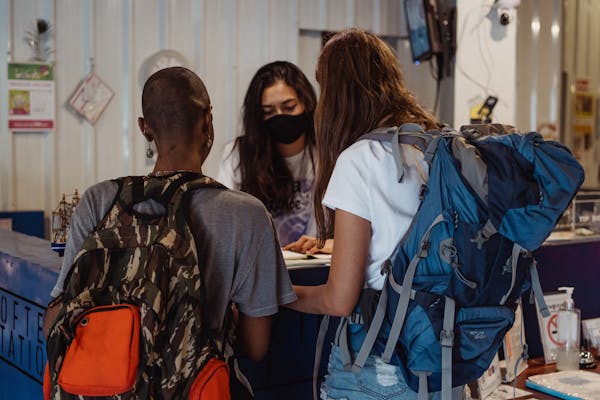Ways To Obtain Grants for Youth Development Programs
Grants for youth development programs is essential in the modern world as these programs create job opportunities to youth. Obtaining grants for youth development projects can be a challenging task, but with the right strategies and approach, it is possible to secure funding for such important initiatives. In this article, I outline 9 successful tips to help individuals and organizations successfully obtain grants for youth development projects.

Research on potential grant opportunities
To obtain the grants for youth programs, the first tip you need to know is to make sure you engage on a thorough research of potential grant opportunities. This involves identifying funders that have a focus on youth development and align with the goals and objectives of the project. By conducting comprehensive research, applicants can target their efforts towards funders that are most likely to support their initiatives.
Review grant guidelines and requirements

The second step you need to take and which is very useful too is that you should know that you have to carefully review the grant guidelines and requirements. This includes understanding the eligibility criteria, deadlines, and application process. By following the instructions closely, applicants can ensure that their proposals meet all the necessary requirements for consideration. Failure to follow these instructions, such as deadlines, could see your application thrown away even if it meets the rest of the requirements.
The need for the project
Under normal circumstances, projects are created to address issues in the society; therefore, the third tip is to clearly articulate the need for the project. Funders want to know why the project is important and how it will benefit the targeted youth population. By providing compelling evidence of the need for the project, applicants can demonstrate the relevance and significance of their proposal. Your proposal should show clearly how it is going to solve a true problem that exists in the society and improve people’s living standards.
Develop a strong and well-defined project plan

A well-defined project plan is to a project what a map is to a house. The project plan should stipulate clearly everything that will be carried out in that project. It is essential to develop a strong and well-defined project plan. This involves clearly outlining the goals, objectives, activities, and outcomes of the project. By presenting a detailed and organized project plan, applicants can demonstrate their capacity to effectively implement and manage the proposed initiative. The well articulated projects separates your proposal from the rest of the applicants.
Establish clear measurable outcomes
Apart from the well defined project, outcomes are important and necessary in a project plan. This brings us to our fifth tip which is to establish clear and measurable outcomes. Funders want to see the impact and effectiveness of the project. By setting specific, achievable, and measurable outcomes, applicants can demonstrate their ability to track and evaluate the success of the project. Moreover, this is not simply necessary to those giving funds but also gives joy and fulfillment to those implementing the project as they will see impact to people’s lives.
Strong partnerships and collaborations

Furthermore, it is important to build strong partnerships and collaborations. The collaborations can be both local and international; they could be very useful indeed. Funders value partnerships with other organizations, stakeholders, and community members. By demonstrating a collaborative approach to youth development, applicants can strengthen their proposals and show a commitment to working together towards a common goal. Remember that it is always important to benchmark from the established standards and that is possible only through partnerships and collaborations.
Realistic budget

A budget tells the funders how each component of the project will be run; when it is realistic, it will clearly show how effective the project will be. Funders want to see a well-planned and sustainable budget that reflects the costs of the project. By carefully estimating expenses, revenues, and in-kind contributions, applicants can demonstrate financial responsibility and ensure the long-term viability of the project. A realistic budget demonstrates as well the honesty and transparency of the team; however, the components in the project could change so long as they can reasonably be explained.
Effective Communication with funders
Moreover, it is crucial to engage with the funder and seek feedback on the proposal. This involves building relationships with funders, attending information sessions, and seeking guidance on the application process. By actively engaging with funders, applicants can receive valuable feedback and improve their proposals based on the funder’s preferences and priorities. While it is important to keep in touch with the funders, it is important to know how to rightly connect with them in the right manner.
Organizational capacity and Expertise

Additionally, it is important to demonstrate organizational capacity and expertise. Funders want to see that applicants have the necessary skills, experience, and resources to successfully implement the project. By highlighting organizational strengths and qualifications, applicants can instill confidence in the funder and showcase their ability to deliver on the proposed initiative. The strength and expertise of the team will influence the funders positively and even work with them in future projects as the team demonstrates expertise.
Conclusion on Grants for youth development programs
Obtaining grants for youth development programs requires a strategic and proactive approach. By following these 9 successful tips, individuals and organizations can increase their chances of securing funding for important initiatives that benefit the youth population. It is essential to conduct thorough research, follow grant guidelines, articulate the need for the project, develop a strong project plan, establish clear outcomes, build partnerships, create a realistic budget, engage with funders, and demonstrate organizational capacity.
By implementing these tips, grant applicants can enhance their proposals and maximize their opportunities for success in obtaining grants for youth development projects. The tips we have listed are not necessarily comprehensive but rather they shed light on the way the approach could be followed.
Frequently asked questions on Grants for youth development programs
We stated earlier that some youth development programs create job opportunities for other youth in the community. These projects are normally run by Non Governmental Organizations (NGO) which act as important actors. There are a number of questions raised up by this subject, and here are some of them:
- Are there specific youth programs that attract funds for development?
- Are there government funds for youth development programs in my country?
- Are there grants for youth development programs in Africa?
- What international grants for youth development projects there?
- When will there be free calls for grants of youth in their development projects?
